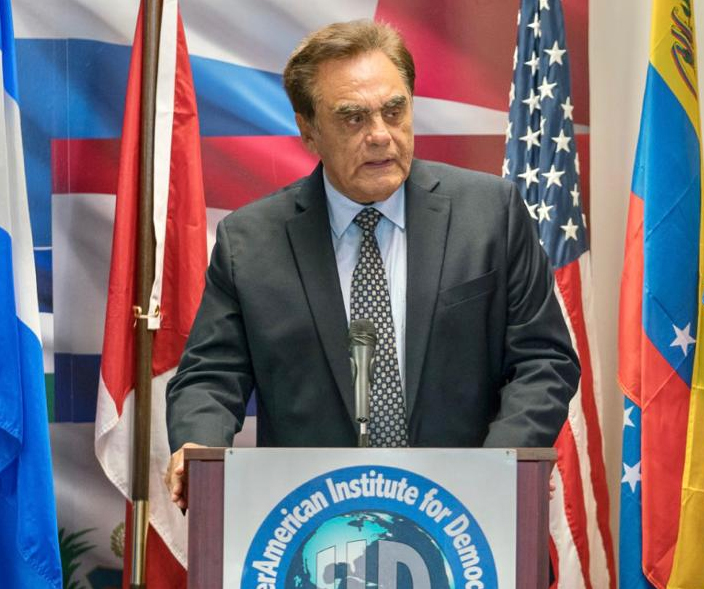The UN is just a letterhead

By: Luis Gonzales Posada - 30/06/2025
Share:
This year, I attended the 2025 forum of the Royal Academy of Morocco in Rabat, a prestigious institution directed by the Perpetual Secretary, Abdeljalil Lahjomri, of which I have been an honorary member since 2023.
The Academy, founded in 1977 by King Hassan II, aims to contribute to peace and promote scientific research, particularly in the fields of science, culture and the arts.
At the event, attendees discussed the bloody conflict between Israel and Palestine, the abominable murders perpetrated by the terrorist group Hamas, and the Israeli response, which together have resulted in more than 54,000 deaths.
But the greatest distress centered on Russia's brutal invasion of Ukraine, which seized Crimea, Donetsk, Lugansk, Kherson, and Zaporizhia, thus controlling 112,000 kilometers of Ukrainian territory to date.
In that unfortunate context, I argued that these confrontations diverted important resources from military procurement.
I said, in this regard, that global spending on weapons has increased to 2.44 trillion euros, and everything indicates that this figure will increase substantially, as the President of the Council of Europe, Ursula Vonder Layen, warned when she announced that in the next decade Europeans will invest 800 billion euros in military equipment, a gigantic, irrational, and tremendous expenditure, when there are enormous shortages in humanity.
Among other things, two billion people lack access to safe drinking water; 870 million suffer from food insecurity (hunger); 8.2 billion live in poverty; 150 million street children; and 269 million children suffer from severe anemia.
We live in a world where human rights violations are not the exception but an almost universal rule, as demonstrated by the Iranian apocalypse and the brutal Russian bombings of Ukrainian housing complexes, hospitals, and schools. A conflict that has entered its fourth year, with a death toll of 200,000, a million injured, and 10 million displaced, while the destruction of Ukraine's energy infrastructure has reached $524 billion, according to a UN report.
Putin, without a doubt, is a genocidal psychopath, in the same infamous category as Hitler. British journalist John Carlin published an article titled "Rabid Dog Syndrome," claiming that the Russian autocrat "is the worst cancer afflicting the world," adding that "there is not the slightest excuse for the actions of this criminal, starting with his invasion of Ukraine and the serial killing of children."
Former Secretary of State under President Clinton, Madeleine Albright, in her book "Fascism," described Putin as "short, sallow, and so cold he is almost reptilian," and in an article published shortly before her death in The New York Times, she stated that "rather than paving Russia's path to greatness, invading Ukraine will ensure Putin's ignominy by leaving his country diplomatically isolated, economically constrained, and strategically vulnerable to a stronger and more united Western alliance."
We all participate, between astonished and resigned, in this world of barbarism, because the communications revolution allows us to observe and share these events in real time and also to learn about the opaque or nonexistent role played by the United Nations, an institution today converted into a logo, a label, a piece of paper soaked in ink, which costs 4 billion dollars annually to maintain and which, despite its robust budget, projects absolute uselessness in preventing the continued killings and promoting a peace agreement.
The UN has failed in its diplomatic task of containing Moscow's offensive, which also suffers the loss of thousands of soldiers, who are easily replaced with new conscriptions, hiring North Korean mercenaries, and releasing criminals from prison to serve their sentences on the battlefield, where they will die because they lack military training.
The only hope for preventing the conflict from escalating further is for European armed forces to deploy to the war zone, for the UN to do the same through its Blue Helmets, and for the United States to provide strategic weapons, as well as economic and diplomatic support to kyiv. Doing so will protect not only an attacked nation but also Western values—namely, freedom, democracy, and human rights.
We conclude by reaffirming that the UN is far from qualifying as an organization that ensures peace and collective well-being. The big question to be answered is: can this situation be reversed, or will humanity remain unprotected, waiting for a nuclear conflict?
«The opinions published herein are the sole responsibility of its author».